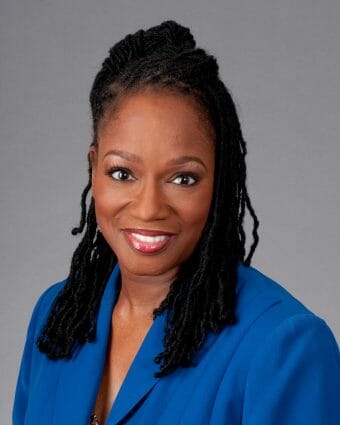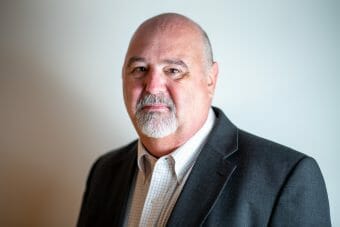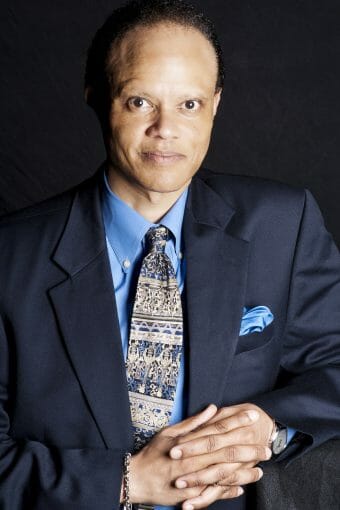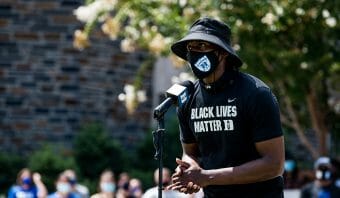Making A Way: The Quest for Black Economic Empowerment
On Nov. 17, 2021, Points of Light and Morehouse College led a conversation on the history of African American self-determination to achieve economic empowerment in the labor market and through individual and collective entrepreneurship amidst the realities of systemic racism and attacks on economically successful Black communities and individuals. Participants learned how Black people have used their collective economic power throughout history to protest inequities and exclusion, bringing about transformative change.
Watch the Conversation On-Demand
Conversation Key-Takeaways
- Economic empowerment includes a psychological dimension that includes our own understanding and competence in the economic sphere, and a physical dimension associated with assets and access, or the land and financial capital available to create businesses.
- Black entrepreneurship has been present throughout history, and these strong economic enterprises supported and strengthened communities.
- The golden age of Black businesses occurred when people started moving from rural communities to cities, and even despite segregation, businesses grew and succeeded in these larger markets.
- Black churches were key to establishing Black economic viability and supported the development of Black communities, businesses and social institutions.
Meet the Speakers
Clarissa Myrick-Harris, Ph.D., Chair, Morehouse College Humanities Division
Scholar, public historian and higher education administrator Dr. Clarissa Myrick-Harris is currently Chair of the Humanities Division of Morehouse College and Professor of Africana Studies. She is also the convener of the Committee to Commemorate the Atlanta Student Movement, which has developed the Atlanta Student Movement Initiative to share the stories and lessons of student activism of the 1950s and ‘60s with young activists fighting against social injustices of today. This initiative includes a series of intergenerational conversations launched Fall 2020 as well as an outdoor exhibition and symposium planned for 2021. During her first tenure at Morehouse College (2012-2016), she was Dean of Humanities and Social Sciences, the first woman academic dean at the institution; and then served as Associate Provost for Pedagogical and Curricular Initiatives. Her higher education leadership experiences also include serving as Interim Associate Provost of Strategic Academic Initiatives and Graduate Studies at Lincoln University of Missouri and Provost at Savannah State University.
Dr. Myrick-Harris was the founding Director of the Curriculum and Faculty Enhancement Program and then Interim Executive Director of the UNCF Institute for Capacity Building (2007-2012). As the National Director of the Global Issues Honors Consortium (GIHC) in the mid-2000s, she was National Director of a partnership between the University of Minnesota (UMTC) and HBCUs Dillard University and Tougaloo College to prepare students for graduate study in international affairs. While in that role, she was also appointed Distinguished Teaching and Research Fellow in the Interdisciplinary Center for the Study of Global Change at UMTC.

Dr. Myrick-Harris’ scholarship focuses on African American leadership and institution building. Her publications include Perspectives on Exemplary Transformational Leadership Among Presidents at Historically Black Colleges and Universities, (2014); “Call the Women: The Tradition of African American Female Activism in Georgia During the Civil Rights Movement,” in the book Southern Black Women in the Modern Civil Rights Movement, (2013); and “Behind the Scenes: Two Women of the Free Southern Theater,” a chapter in the groundbreaking volume Women of the Civil Rights Movement: Trailblazers & Torchbearers, 1941-1965 (1995). She recently completed a historical context study for the National Park Service entitled How They Lived, (2020) which focuses on the family home of civil rights icons Martin Luther King, Jr. and Coretta Scott King and the childhood home of Maynard H. Jackson, Jr., the first black mayor of Atlanta, GA.
The educator earned a Ph.D. in American Studies (African American Studies Emphasis) from Emory University, Master’s degree in News-Editorial Journalism from The Ohio State University, and B.A. degree in English from Morris Brown College.
Keith Hollingsworth, Ph.D., Professor of Business Administration, Morehouse College
Keith Hollingsworth is a Professor of Business Administration at Morehouse College, where he has served since 1994. He also served as Chair of the Business Administration department from 2007 – 2018, and is currently the Interim Department Chair. Hollingsworth currently co-chairs the Committee for Curriculum and Educational Policy. His classes include Data Analytics & Modeling and Black Entrepreneurial History in the US. In 2003, Hollingsworth was the recipient of the Vulcan Materials Teaching Excellence Award for Morehouse College and the Maroon Tiger, the school newspaper, has selected him among the Educators of the Year four times (2004, 2007, 2011, 2012). He received his B.S., M.S. and Ph.D. in Industrial Engineering from the Georgia Institute of Technology in 1990, 1992, and 1995 respectively. His initial research was in productivity analysis, especially data envelopment analysis, but he has shifted into the areas of business leadership and business history.

Dr. Hollingsworth has published in Accounting Historians Journal and the Journal of Management History. His paper in Accounting Historians Journal recovered the identity of one of the South’s first Black CPAs (and Morehouse College’s first alumnus with a CPA). In October 2021, he spoke at the Keller Center at Princeton University on “Working Twice as Hard to get Half as Much: Earning Legitimacy as a Black Business in History”. Hollingsworth is a native of southern Georgia and a first-generation college graduate. He currently attends and is active at All Saints Episcopal Church.
Hannibal B. Johnson, Esq., Author, Attorney and Consultant
Hannibal B. Johnson is a graduate of Harvard Law School. He did his undergraduate work at The University of Arkansas, where he completed a double major in economics and sociology. Johnson is an attorney, author, and independent consultant specializing in diversity & inclusion/cultural competence issues and nonprofit governance. Johnson has also served as an adjunct professor at The University of Tulsa College of Law (legal writing; legal ethics), Oklahoma State University (leadership and group dynamics; business law [MBA Program]), and the University of Oklahoma (ethics; cultural diversity; race & reason; The 1921 Tulsa Race Riot; nonprofit leadership & management).
Johnson serves on the federal 400 Years of African-American History Commission, a body charged with planning, developing, and implementing activities appropriate to the 400th anniversary of the arrival, in 1619, of Africans in the English colonies at Point Comfort, Virginia. He chairs the Education Committee for the 1921 Tulsa Race Massacre Centennial Commission. Johnson is past president of Leadership Tulsa, the Metropolitan Tulsa Urban League, and the Northeast Oklahoma Black Lawyers Association. He served as chair of the board of directors of The Community Leadership Association, an international leadership organization, during 2001 – 2002, is a founding director of the Oklahoma Appleseed Center for Law and Justice, and is past chair of the board of the Oklahoma Department of Libraries. He has also served on the Oklahoma Advisory Committee for the United States Commission on Civil Rights. Johnson directed Anytown, Oklahoma, a statewide human relations camp for teens, for more than a decade, and served on the Advisory Board of the Mayborn Literary Nonfiction Writers Conference of the Southwest.

Johnson served as chairman of board of directors of The Rotary Club of Tulsa, 2015 – 2016, chaired the Club’s Diversity and Inclusion Committee during that same period, and served as the Club’s President during 2018 – 2019. He has served on the Institutional Review Board for Oklahoma State University Center for Health Sciences, and is past chair of the board of directors of the Foundation for Tulsa Schools. He has also served as a member of the board of directors of the Oklahoma Humanities Council. He served on the Programs Committee for the John Hope Franklin Center for Reconciliation and organized the Center’s annual symposium for several years. In 2004, Johnson graduated with the inaugural class of the national “Connecting Community Fellowship Program” based in Richmond, Virginia.
Clarissa Myrick-Harris, Ph.D., Chair, Morehouse College Humanities Division
Scholar, public historian and higher education administrator Dr. Clarissa Myrick-Harris is currently Chair of the Humanities Division of Morehouse College and Professor of Africana Studies. She is also the convener of the Committee to Commemorate the Atlanta Student Movement, which has developed the Atlanta Student Movement Initiative to share the stories and lessons of student activism of the 1950s and ‘60s with young activists fighting against social injustices of today. This initiative includes a series of intergenerational conversations launched Fall 2020 as well as an outdoor exhibition and symposium planned for 2021. During her first tenure at Morehouse College (2012-2016), she was Dean of Humanities and Social Sciences, the first woman academic dean at the institution; and then served as Associate Provost for Pedagogical and Curricular Initiatives. Her higher education leadership experiences also include serving as Interim Associate Provost of Strategic Academic Initiatives and Graduate Studies at Lincoln University of Missouri and Provost at Savannah State University.
Dr. Myrick-Harris was the founding Director of the Curriculum and Faculty Enhancement Program and then Interim Executive Director of the UNCF Institute for Capacity Building (2007-2012). As the National Director of the Global Issues Honors Consortium (GIHC) in the mid-2000s, she was National Director of a partnership between the University of Minnesota (UMTC) and HBCUs Dillard University and Tougaloo College to prepare students for graduate study in international affairs. While in that role, she was also appointed Distinguished Teaching and Research Fellow in the Interdisciplinary Center for the Study of Global Change at UMTC.

Dr. Myrick-Harris’ scholarship focuses on African American leadership and institution building. Her publications include Perspectives on Exemplary Transformational Leadership Among Presidents at Historically Black Colleges and Universities, (2014); “Call the Women: The Tradition of African American Female Activism in Georgia During the Civil Rights Movement,” in the book Southern Black Women in the Modern Civil Rights Movement, (2013); and “Behind the Scenes: Two Women of the Free Southern Theater,” a chapter in the groundbreaking volume Women of the Civil Rights Movement: Trailblazers & Torchbearers, 1941-1965 (1995). She recently completed a historical context study for the National Park Service entitled How They Lived, (2020) which focuses on the family home of civil rights icons Martin Luther King, Jr. and Coretta Scott King and the childhood home of Maynard H. Jackson, Jr., the first black mayor of Atlanta, GA.
The educator earned a Ph.D. in American Studies (African American Studies Emphasis) from Emory University, Master’s degree in News-Editorial Journalism from The Ohio State University, and B.A. degree in English from Morris Brown College.
Keith Hollingsworth, Ph.D., Professor of Business Administration, Morehouse College
Keith Hollingsworth is a Professor of Business Administration at Morehouse College, where he has served since 1994. He also served as Chair of the Business Administration department from 2007 – 2018, and is currently the Interim Department Chair. Hollingsworth currently co-chairs the Committee for Curriculum and Educational Policy. His classes include Data Analytics & Modeling and Black Entrepreneurial History in the US. In 2003, Hollingsworth was the recipient of the Vulcan Materials Teaching Excellence Award for Morehouse College and the Maroon Tiger, the school newspaper, has selected him among the Educators of the Year four times (2004, 2007, 2011, 2012). He received his B.S., M.S. and Ph.D. in Industrial Engineering from the Georgia Institute of Technology in 1990, 1992, and 1995 respectively. His initial research was in productivity analysis, especially data envelopment analysis, but he has shifted into the areas of business leadership and business history.

Dr. Hollingsworth has published in Accounting Historians Journal and the Journal of Management History. His paper in Accounting Historians Journal recovered the identity of one of the South’s first Black CPAs (and Morehouse College’s first alumnus with a CPA). In October 2021, he spoke at the Keller Center at Princeton University on “Working Twice as Hard to get Half as Much: Earning Legitimacy as a Black Business in History”. Hollingsworth is a native of southern Georgia and a first-generation college graduate. He currently attends and is active at All Saints Episcopal Church.
Hannibal B. Johnson, Esq., Author, Attorney and Consultant
Hannibal B. Johnson is a graduate of Harvard Law School. He did his undergraduate work at The University of Arkansas, where he completed a double major in economics and sociology. Johnson is an attorney, author, and independent consultant specializing in diversity & inclusion/cultural competence issues and nonprofit governance. Johnson has also served as an adjunct professor at The University of Tulsa College of Law (legal writing; legal ethics), Oklahoma State University (leadership and group dynamics; business law [MBA Program]), and the University of Oklahoma (ethics; cultural diversity; race & reason; The 1921 Tulsa Race Riot; nonprofit leadership & management).
Johnson serves on the federal 400 Years of African-American History Commission, a body charged with planning, developing, and implementing activities appropriate to the 400th anniversary of the arrival, in 1619, of Africans in the English colonies at Point Comfort, Virginia. He chairs the Education Committee for the 1921 Tulsa Race Massacre Centennial Commission. Johnson is past president of Leadership Tulsa, the Metropolitan Tulsa Urban League, and the Northeast Oklahoma Black Lawyers Association. He served as chair of the board of directors of The Community Leadership Association, an international leadership organization, during 2001 – 2002, is a founding director of the Oklahoma Appleseed Center for Law and Justice, and is past chair of the board of the Oklahoma Department of Libraries. He has also served on the Oklahoma Advisory Committee for the United States Commission on Civil Rights. Johnson directed Anytown, Oklahoma, a statewide human relations camp for teens, for more than a decade, and served on the Advisory Board of the Mayborn Literary Nonfiction Writers Conference of the Southwest.

Johnson served as chairman of board of directors of The Rotary Club of Tulsa, 2015 – 2016, chaired the Club’s Diversity and Inclusion Committee during that same period, and served as the Club’s President during 2018 – 2019. He has served on the Institutional Review Board for Oklahoma State University Center for Health Sciences, and is past chair of the board of directors of the Foundation for Tulsa Schools. He has also served as a member of the board of directors of the Oklahoma Humanities Council. He served on the Programs Committee for the John Hope Franklin Center for Reconciliation and organized the Center’s annual symposium for several years. In 2004, Johnson graduated with the inaugural class of the national “Connecting Community Fellowship Program” based in Richmond, Virginia.
Conversation Resources
- History and Legacy of Black Entrepreneurship in the United States Fall Roundtable (Keller Center at Princeton University)
- Legitimizing Black Business: Three Examples from the Civil War to Civil Rights (Keith Hollingsworth, 2020)
- The Economic State of Black America: What is and What Could Be (McKinsey & Company, 2021)
- What We Get Wrong About Closing the Racial Wealth Gap (William Darity Jr., Darrick Hamilton, Mark Paul, Alan Aja, Anne Price,
Antonio Moore, and Caterina Chiopris, 2018)

Listen
Listen to conversations from leading social justice experts on a diverse set of topics to inspire and educate and see upcoming event.
Learn More
Learn
Find strategies for taking action and resources for deeper learning so you have the tools to launch effective social issue campaigns in your communities.
Learn More
